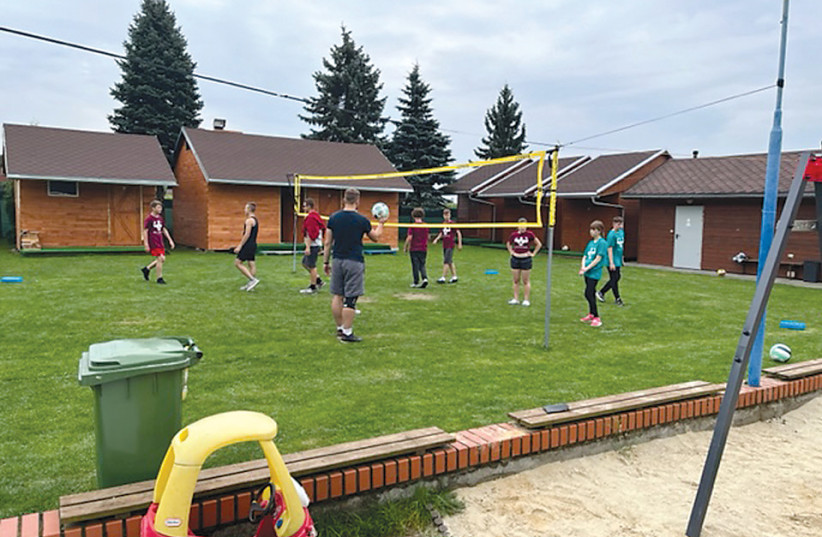He has been friends with the pastor in Palowice for 25 years, and they have spoken in each other’s churches in Vienna and in Jerusalem. In 2012, the Palowice pastor suggested to Nucciarone that they create a youth sports camp, noting that the church has sports facilities and cabins for housing. Palowice is located in southern Poland, about 120 kilometers (75 miles) from Krakow.
“He knew I was interested in sports,” says Nucciarone.
The camp has been held every two years, but because of coronavirus, Nucciarone was unable to leave Israel in 2020, so the pastor used European staff.
This summer, Nucciarone recruited a staff of 10 adults who helped in the camp – six from Israel, one from England, one from Austria, and two from America. The Polish church, on whose grounds the camp was held, contributed 10 Polish young adults to help with the camp staff.
Before and after the camp, Nucciarone took the adult staff on field trips to the Auschwitz concentration camp, as well as the city and salt mines of Krakow. The youth contributed some funds to attend the camp, and there were scholarships available from outside sources. All the staff were volunteers and were provided with room and board.
A typical day at camp included breakfast, spiritual devotions, warm-ups, and four sessions of sports which were rotated – soccer, basketball, volleyball and cross-fit (fitness exercises). In between, the participants had snacks and drinks. After lunch, where the youth took part in kitchen duties, there were fun and games such as swimming, water balloon fights and tug-of-war. At 5 p.m., workshops that were offered included food preparation, sign language, and folk dancing. After dinner, there were programs that ranged from games and sing-alongs to spiritual devotions. One of the evening programs was an outdoor barbecue and campfire. On the last night, there was a walk through the forest with torches.
Since the beginning of the Ukrainian war, four million Ukrainians have gone to Poland. Many of the Ukrainians at the camp arrived with their pastor from Kyiv. The Palowice church has assisted 20 families. Many of the Ukrainian women helped in the camp with the cooking. The church was also given a large van to help assist Ukrainians with supplies on a regular basis.
Nucciarone was invited to speak at the church in nearby Rybnic, which also assists Ukrainians and was hosting around 40 Ukrainians, including a pastor and his family. “It was quite a challenge to speak in English and then be translated into Polish and then Russian,” says Nucciarone.
“The camp became a symbol of what can happen when people from one country sacrifice themselves and reach out to care for people who were forced out of their country because of war.”
Pastor Albert Nucciarone
“The camp became a symbol of what can happen when people from one country sacrifice themselves and reach out to care for people who were forced out of their country because of war,” says Nucciarone. “Lives were changed, and the true joy of giving was experienced. For the kids at the camp, it will be a memory that they will never forget.” ■
Sybil Kaplan is a Jerusalem-based journalist, lecturer, book reviewer, food writer and contributor to/writer of nine cookbooks. She works as a foreign correspondent for North American Jewish publications and leads walking tours in English in Mahaneh Yehuda, the Jerusalem produce market. She can be contacted at sybilkaplan1938@aol.com

